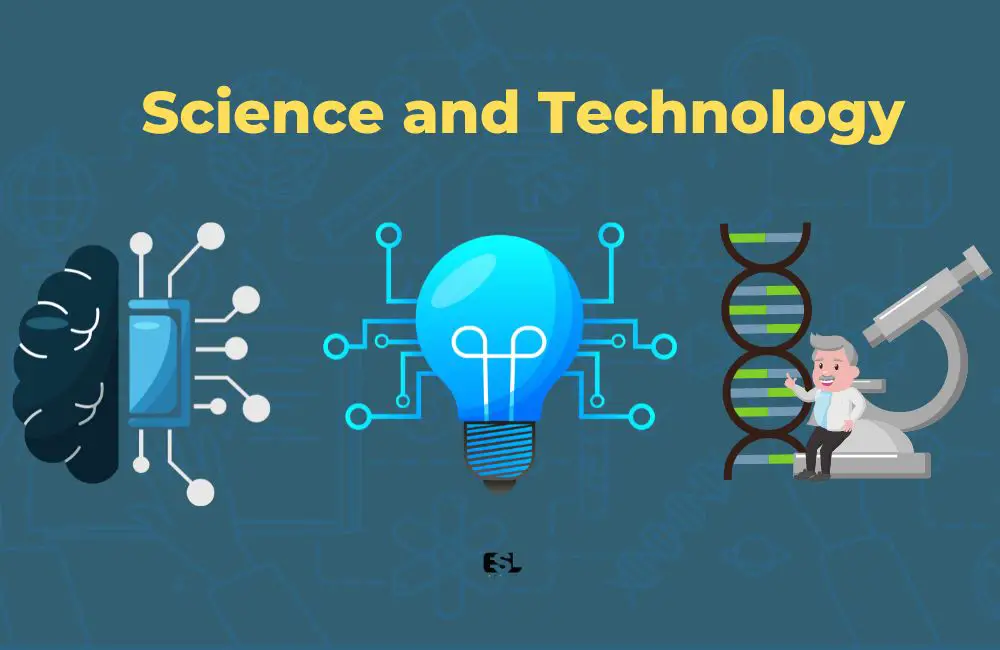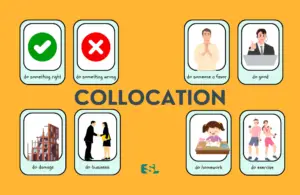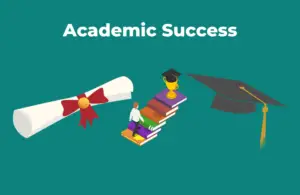As science and technology continue to evolve at a rapid pace, the vocabulary surrounding these fields also expands. Whether you’re a student, a professional, or simply an interested observer, understanding the key terms in science and technology can enrich your knowledge and help you engage more effectively in discussions about these important topics.
This comprehensive guide will provide you with an overview of the essential vocabulary in various categories related to science and technology.
Table of Contents
- 1. Basic Scientific Methodology
- 2. Biology
- 3. Physics
- 4. Chemistry
- 5. Technology
- Sample Conversation: Using Vocabulary Related to Science and Technology
- Conclusion
- FAQ: Vocabulary Related to Science and Technology
1. Basic Scientific Methodology
Scientific methodology forms the backbone of scientific discovery. Here are some terms to understand this systematic approach.
| Word/Phrase | Meaning/Usage | Example Sentences |
|---|---|---|
| Hypothesis | An educated guess or prediction that can be tested | “The scientist formed a hypothesis about the behavior of the particles.” |
| Experiment | A test under controlled conditions to discover an unknown effect or law, to test or establish a hypothesis, or to illustrate a known law | “They conducted an experiment to test the strength of different materials.” |
| Control Group | In an experiment, the group that does not receive the experimental treatment | “The control group received a placebo instead of the medication.” |
| Variable | Any factor that can be controlled, changed, or measured in an experiment | “The temperature was a key variable in their experiment.” |
| Data | Factual information, especially information organized for analysis or used as the basis for a decision | “She collected data on plant growth rates.” |
| Analysis | The detailed examination of the elements or structure of something | “After gathering data, they performed an analysis.” |
| Conclusion | A judgment or decision reached by reasoning | “The experiment led to the conclusion that light affects plant growth.” |
| Theory | A well-substantiated explanation of some aspect of the natural world, based on a body of facts that have been repeatedly confirmed through observation and experiment | “The theory of evolution explains the diversity of life on Earth.” |
| Peer Review | The process by which the work of scholars in a field is checked by their peers to ensure its quality | “The scientist’s research was subjected to peer review before publication.” |
| Replication | The repetition of an experiment to confirm findings or to ensure accuracy | “The replication of the study confirmed the original findings.” |
To elevate your vocabulary in just 30 days, I recommend to my students an informative, fun, and accessible guide to utilizing powerful language. Millions of individuals have enhanced their academics, job skills, and confidence by dedicating just fifteen minutes daily to the exercises and tests of 30 Days to a More Powerful Vocabulary (Amazon Link), a top-selling. It offers step-by-step methods to bolster language prowess, discover compelling words, and daily vocabulary enhancement with pronunciation guidance.
2. Biology
Biology is the study of living organisms. Here are key terms for discussing this life science.
| Word/Phrase | Meaning/Usage | Example Sentences |
|---|---|---|
| Cell | The smallest structural and functional unit of an organism | “The human body is composed of billions of cells.” |
| DNA | The molecule carrying genetic instructions for the growth, development, functioning, and reproduction of all known organisms | “DNA sequencing is used to identify different species.” |
| Evolution | The process by which species of organisms arise from earlier life forms and undergo change over time through natural selection | “Darwin’s theory of evolution revolutionized biology.” |
| Ecosystem | A community of living organisms in conjunction with the nonliving components of their environment, interacting as a system | “Coral reefs are diverse ecosystems.” |
| Species | The largest group of organisms in which two individuals can produce fertile offspring | “There are approximately 8.7 million species on Earth.” |
| Photosynthesis | The process by which green plants and some other organisms use sunlight to synthesize foods with the aid of chlorophyll | “Photosynthesis is how plants produce oxygen and glucose.” |
| Biodiversity | The variety and variability of life on Earth | “The Amazon rainforest is known for its high biodiversity.” |
| Genome | The complete set of genes or genetic material present in a cell or organism | “The Human Genome Project mapped the entire human genome.” |
| Metabolism | The chemical processes that occur within a living organism in order to maintain life | “A high metabolism can lead to weight loss.” |
| Organism | An individual animal, plant, or single-celled life form | “Bacteria are single-celled organisms.” |
3. Physics
Physics is the branch of science concerned with the nature and properties of matter and energy. Here are key terms for understanding and discussing physics.
| Word/Phrase | Meaning/Usage | Example Sentences |
|---|---|---|
| Force | A push or pull upon an object resulting from the object’s interaction with another object | “Gravity is a force that pulls objects toward each other.” |
| Energy | The capacity to do work or produce heat | “Potential energy is stored energy.” |
| Quantum Mechanics | A fundamental theory in physics that provides a description of the physical properties of nature at the scale of atoms and subatomic particles | “Quantum mechanics has revolutionized our understanding of the physical world.” |
| Particle | A minute portion of matter | “An atom is composed of particles called protons, neutrons, and electrons.” |
| Velocity | The speed of something in a given direction | “The velocity of the car was 60 mph to the north.” |
| Momentum | The quantity of motion of a moving body, measured as a product of its mass and velocity | “A heavier object has more momentum than a lighter one moving at the same speed.” |
| Gravity | The force that attracts a body toward the center of the earth, or toward any other physical body having mass | “Gravity keeps us grounded on the Earth’s surface.” |
| Thermodynamics | The branch of physics that deals with the relationships between heat and other forms of energy | “Thermodynamics explains how heat engines work.” |
| Relativity | The theory developed by Albert Einstein in 1915 which is the current description of gravitation in modern physics | “The theory of relativity led to new ways of thinking about time and space.” |
| Atom | The smallest unit of a chemical element that retains the properties of that element | “An atom consists of a nucleus and electron cloud.” |
4. Chemistry
Chemistry is the branch of science that deals with the identification of substances and the investigation of their properties. Here are key terms for understanding and discussing chemistry.
| Word/Phrase | Meaning/Usage | Example Sentences |
|---|---|---|
| Element | A substance that cannot be broken down into simpler substances by chemical means | “Gold is an element.” |
| Compound | A substance formed when two or more chemical elements are chemically bonded together | “Water is a compound made from hydrogen and oxygen.” |
| Molecule | The smallest particle in a chemical element or compound that has the chemical properties of that element or compound | “A water molecule consists of two hydrogen atoms and one oxygen atom.” |
| Reaction | A process in which one or more substances, the reactants, are converted to one or more different substances, the products | “In a chemical reaction, the final substance is different from the starting substances.” |
| Acid | A molecule or other entity that can donate a proton or accept an electron pair in reactions | “Citric acid is found in citrus fruits.” |
| Base | A substance that can accept protons or donate a pair of valence electrons | “Sodium hydroxide is a common base.” |
| pH | A scale used to specify the acidity or basicity of an aqueous solution | “Lemon juice has a pH of about 2, making it acidic.” |
| Chemical bond | A lasting attraction between atoms, ions or molecules that enables the formation of chemical compounds | “Covalent bonds form when atoms share electrons.” |
| Catalyst | A substance that increases the rate of a chemical reaction without itself undergoing any permanent chemical change | “Enzymes are catalysts in many biological reactions.” |
| Solvent | A substance that dissolves a solute, resulting in a solution | “Water is known as the universal solvent.” |
5. Technology
Technology plays a vital role in our lives, constantly changing the way we live, work, and communicate. Here are key terms for understanding and discussing technology.
| Word/Phrase | Meaning/Usage | Example Sentences |
|---|---|---|
| Internet | A global network of computers and servers that allows the exchange of information | “The internet has revolutionized communication and research.” |
| Software | Programs and other operating information used by a computer | “Microsoft Office is a popular software suite.” |
| Hardware | The physical parts of a computer or related device | “The monitor, keyboard, and hard drive are all examples of computer hardware.” |
| Database | A structured set of data stored in a computer or server | “Customer information is often stored in a database.” |
| Programming | The process of designing and building an executable computer program to accomplish a specific task | “She’s learning programming to become a software engineer.” |
| Artificial Intelligence | The simulation of human intelligence processes by machines, especially computer systems | “Artificial intelligence is being used to develop self-driving cars.” |
| Cybersecurity | The practice of protecting computers, servers, mobile devices, electronic systems, networks, and data from digital attacks | “With the increase in cyber attacks, companies are investing more in cybersecurity.” |
| Cloud Computing | The delivery of computing services over the internet rather than using local servers or personal devices | “Many businesses are moving to cloud computing for their data storage needs.” |
| Algorithm | A set of rules or procedures for solving a problem or accomplishing a task, especially by a computer | “Search engines use complex algorithms to deliver relevant results.” |
| Virtual Reality | A simulated experience that can be similar to or completely different from the real world | “Virtual reality technology is increasingly used in gaming and training simulations.” |
If you are searching for an effective English language vocabulary builder, try Word Power Made Easy: The Complete Handbook for Building a Superior Vocabulary (Amazon Link). This time-tested classic has helped millions achieve mastery of English and improve their communication skills in business, the classroom, and in life.
Sample Conversation: Using Vocabulary Related to Science and Technology
Situation: At a science and tech conference, Maria and Arjun discuss recent breakthroughs and their implications for the future.
Maria: Arjun, have you attended the session on “quantum computing”? It’s fascinating how it challenges the traditional “binary” systems we’ve grown accustomed to.
Arjun: Absolutely, Maria. The potential for “parallel processing” in quantum computers could revolutionize fields like “cryptography” and “data analysis.” Have you looked into the advancements in “biotechnology”?
Maria: Yes, especially the work on “gene editing” using CRISPR technology. It’s opening doors to potential cures for genetic disorders. It’s a fine example of “applied science.”
Arjun: Indeed. And speaking of applied sciences, the “nanotechnology” exhibit showcased some promising innovations, especially in “material science.”
Maria: I’ve seen that! The development of “superconductors” and their potential applications in sustainable energy is groundbreaking. It’s amazing how “theoretical physics” concepts are being realized in practical applications.
Arjun: Science and technology truly go hand in hand. Whether it’s “artificial intelligence” driving automation or “astrobiology” expanding our understanding of life beyond Earth, we’re on the cusp of significant breakthroughs.
Conclusion
Understanding the vocabulary of science and technology is crucial for anyone interested in these fields, whether for professional development, academic study, or personal interest. While this guide provides an overview, remember that language is always evolving, particularly in rapidly changing fields like science and technology.
Keeping up with new terms and concepts can be challenging, but it’s also an exciting part of lifelong learning in these dynamic areas.
FAQ: Vocabulary Related to Science and Technology
1. What is “quantum computing”?
“Quantum computing” utilizes principles of quantum mechanics to process vast amounts of data simultaneously, offering computational power vastly superior to traditional binary systems.
2. How does “binary” computing work?
“Binary” computing operates on the binary number system, using bits represented by 0s and 1s. This system forms the basis of classical computers.
3. What is “parallel processing”?
“Parallel processing” involves executing multiple processes simultaneously, speeding up computational tasks and enhancing system efficiency.
4. How is “cryptography” related to quantum computing?
“Cryptography” involves securing information through coded messages. Quantum computing holds the potential to break current encryption methods but also offers new, more secure encryption possibilities.
5. What does “gene editing” entail in “biotechnology”?
“Gene editing” involves altering the DNA sequences in living organisms to correct mutations or introduce new genetic characteristics. CRISPR is a notable tool in this domain.
6. How is “nanotechnology” shaping “material science”?
“Nanotechnology” deals with structures at the molecular and atomic scale. In “material science,” it’s helping develop materials with enhanced properties, like increased strength or improved electrical conductivity.
7. What are “superconductors”?
“Superconductors” are materials that can conduct electricity without resistance, typically at very low temperatures. They hold promise for efficient energy transmission.
8. How does “theoretical physics” differ from “applied science”?
“Theoretical physics” focuses on understanding the fundamental principles of the universe, often without immediate practical application. In contrast, “applied science” uses scientific knowledge for practical purposes and real-world solutions.
9. What role does “artificial intelligence” play in modern technology?
“Artificial intelligence” (AI) refers to machine systems that can perform tasks typically requiring human intelligence. It’s revolutionizing sectors like healthcare, finance, and transportation through automation and predictive analysis.
10. What is “astrobiology”?
“Astrobiology” is the study of life’s origin, evolution, and possibility of existing elsewhere in the universe. It combines aspects of biology, chemistry, and astronomy to understand life beyond Earth.






